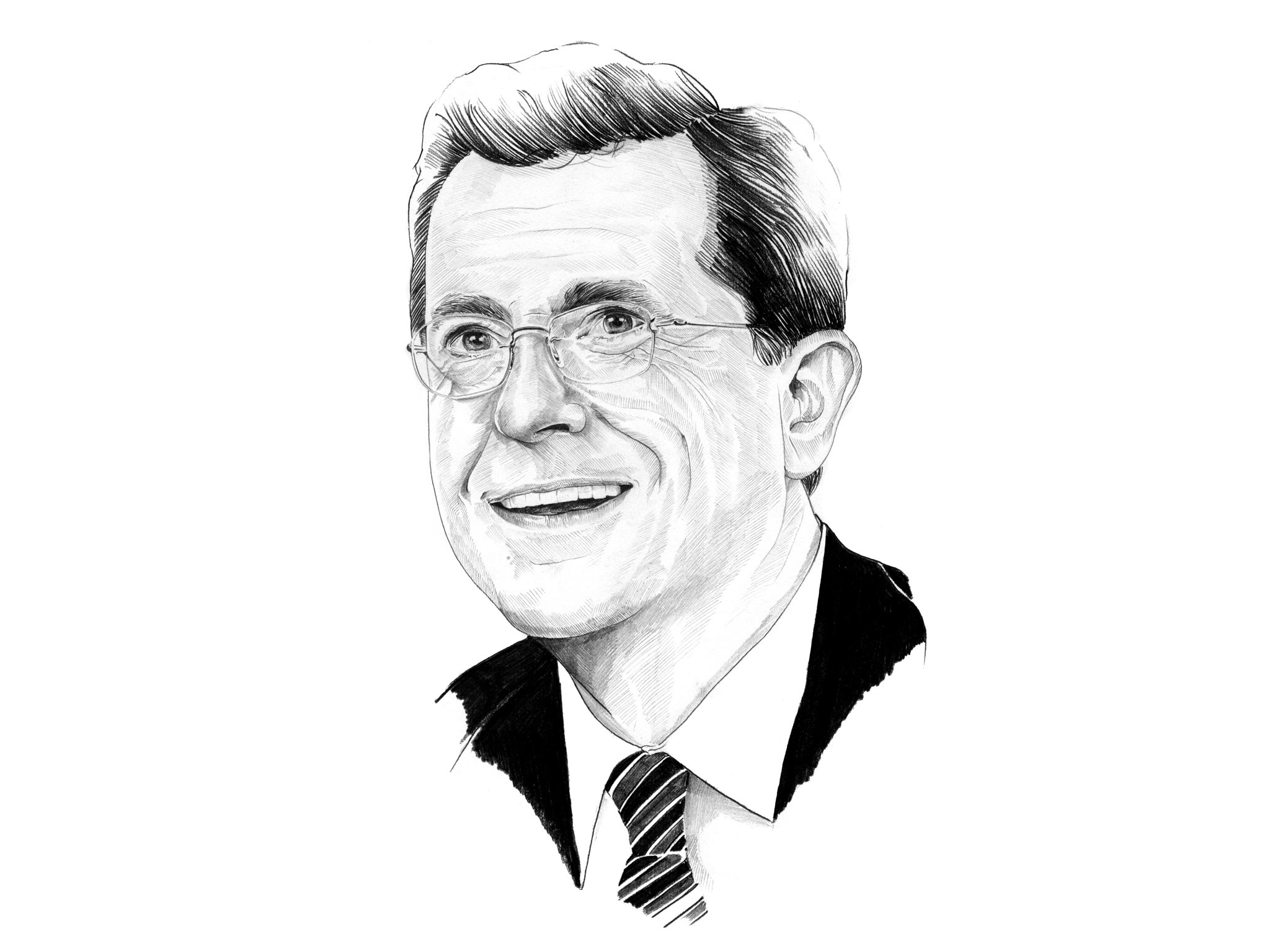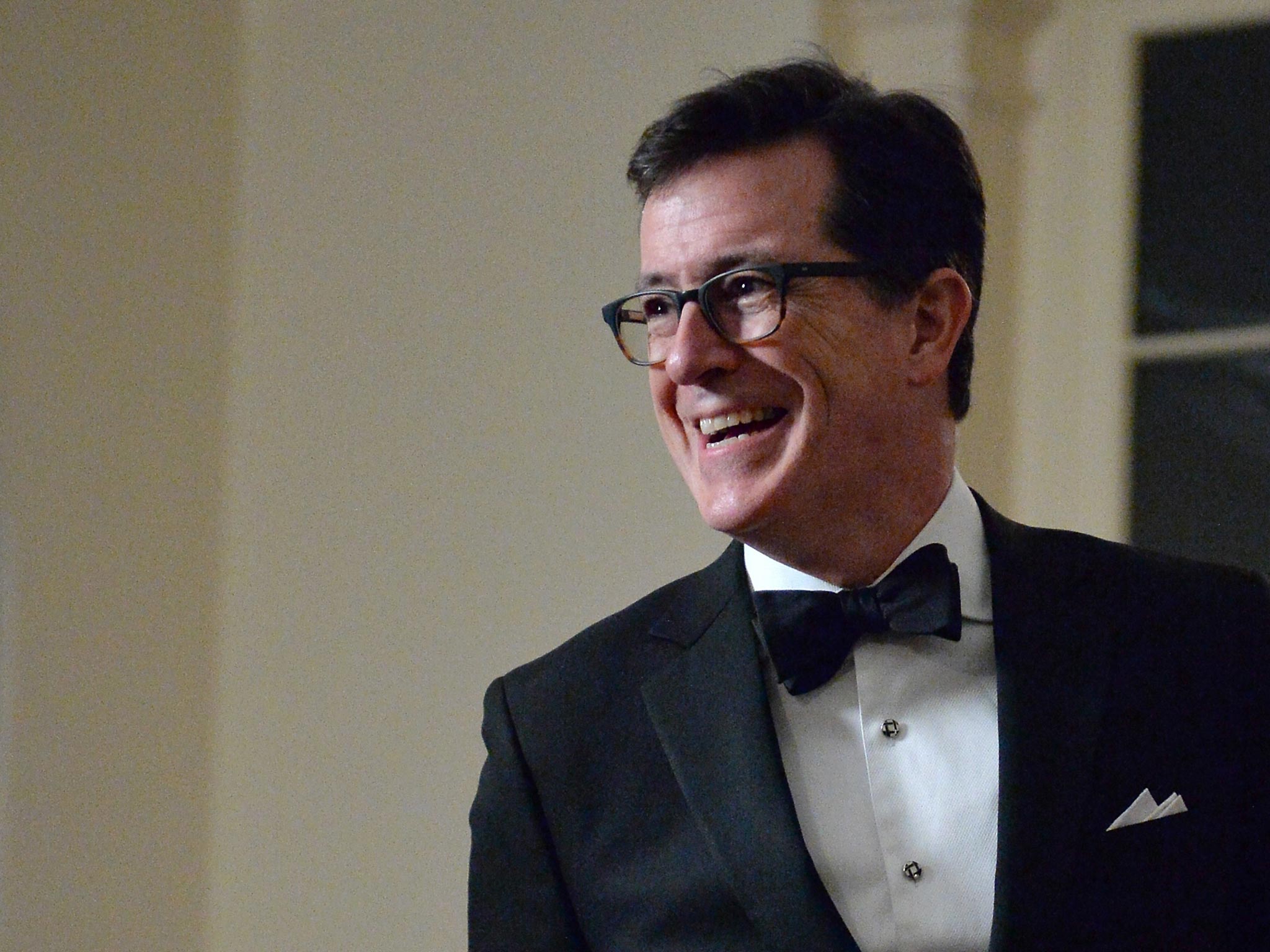Your support helps us to tell the story
From reproductive rights to climate change to Big Tech, The Independent is on the ground when the story is developing. Whether it's investigating the financials of Elon Musk's pro-Trump PAC or producing our latest documentary, 'The A Word', which shines a light on the American women fighting for reproductive rights, we know how important it is to parse out the facts from the messaging.
At such a critical moment in US history, we need reporters on the ground. Your donation allows us to keep sending journalists to speak to both sides of the story.
The Independent is trusted by Americans across the entire political spectrum. And unlike many other quality news outlets, we choose not to lock Americans out of our reporting and analysis with paywalls. We believe quality journalism should be available to everyone, paid for by those who can afford it.
Your support makes all the difference.It’s only when a US talk show achieves a certain level of influence that it becomes known solely by the host’s surname. Carson, Leno, Letterman... But as soon as Stephen Colbert – who was announced on Thursday as the replacement for David Letterman on CBS’s The Late Show – was given his own show in 2005, it would quickly be known, simply, as “Colbert”.
The Colbert Report would be a career peak for most comics. Spun off from the success of Jon Stewart’s The Daily Show, on which Colbert was a “correspondent” for eight years, the Report gave Colbert’s alter ego, a bloviating conservative in the style of Bill O’Reilly, half an hour to put America to rights, four nights a week. Because of it, Colbert has become an unlikely influence on US politics. He would run for president twice; co-host a rally attended by 215,000 people; riff with Obama; dance with Henry Kissinger and, bizarrely, testify in character in Congress about immigration. Now he’s conquered politics, he’s landed where real American power lies: late-night TV.
Colbert has driven a long road to the Ed Sullivan Theater. The 49-year-old was the 11th of 11 children born to Lorna Tuck and James Colbert, a doctor. It was a numerical position in his family which he admits to this day makes him fight for attention. The giant Catholic family, which now has wide roots in Colbert’s home town of Charleston, South Carolina, was torn apart on 11 September 1974, when an Eastern Airlines flight carrying Colbert’s father and brothers Peter and Paul crashed, killing all three. His mother, who died last summer, sister Elizabeth (an aspirant politician) and their faith helped to hold the family together and, as such, Colbert remains a committed Christian, who teaches Sunday school.
Having dropped out of an all-male college in Virginia, Colbert moved to Chicago to study theatre at Northwestern University.
After graduating, Colbert joined the Second City improv troupe whose graduates included John Belushi, Dan Aykroyd and Bill Murray. His work there led to several shows on Comedy Central, and a later gig on The Dana Carvey Show – a short-lived sketch show which would help to launch the careers of Louis CK, Charlie Kaufman and Colbert’s Daily Show sparring partner Steve Carell. (The pair faced off in a segment called Even Stevphen.)
In 1997, Colbert got a call from a producer on ABC’s Good Morning America which was looking for “someone who looked straight but could act funny”, which, 17 years later, still acts as a decent appraisal of Colbert’s assassin in a Brooks Brothers suit schtick. The one report he got on air, about Rube Goldberg machines designed to load CD players, contained just a hint of future mischief: “Once again, science triumphs. But are we better for it? Perhaps we should ask those migrant workers who load CDs, whose jobs are now in danger.”

That mischief, his improv background and new press credentials led the Daily Show producer who hired him to suggest he may have been “genetically engineered” to be a correspondent on the show. Colbert actually predated Jon Stewart there, but upon the latter’s arrival in 1998, The Daily Show began an arc towards its modern-day political influence. And, as the Bush years welcomed right-wing pundits such as Sean Hannity, O’Reilly and Rush Limbaugh, Colbert began to layer his character’s bombast.
But it wasn’t until The Colbert Report launched in 2005 that Colbert pushed himself into wider conversation. His success came in part from a skill at creating the kind of content which can help spread the influence of late-night TV beyond 11pm. Those included the hijacking of a poll to rename a Hungarian bridge and the invention of the word “truthiness” (“truth which comes from the gut, not the books”) which was named a 2005 word of the year.
As the Report aged, the comic’s persona sharpened. A behind-the-scenes 2007 clip gives the best explanation of how it works. In it, Colbert asks John Kerry: “You know that I’m in character, and that I’m an idiot? I’m wilfully ignorant of what we’re going to talk about, so disabuse me of my ignorance.”
As Stewart and Colbert became more influential, their role in politics has risen accordingly, with Colbert rarely breaking character. That reached its apex with the pair’s 2010 Rally to Restore Sanity and/or Fear in Washington (a spoof of a similar event by Glenn Beck). But it may have been Colbert’s surgical skewering of George W Bush at the 2006 White House correspondents’ dinner which made a global audience aware of Colbert’s comedy. Among many stings, Colbert told an unamused Bush: “Over the last five years, you people were so good – over tax cuts, WMD intelligence, the effect of global warming. We Americans didn’t want to know, and you had the courtesy not to try to find out.” The clip was a YouTube sensation and gave Colbert a reputation even among those who didn’t know his show. (It had a brief run here on the FX channel.)
From there, he’s risen from cult star to a regular face at award shows and the White House. (In the absence of a Madame Hollande, he sat next to Michelle Obama at a recent state dinner for the French President.) Both Colberts fear no one, not even the creators of the pop hit of the decade. When Daft Punk stood him up to go to the MTV awards instead last summer, Colbert responded by corralling stars including Matt Damon, Bryan Cranston (and Kissinger) for a version of “Get Lucky”.
CBS will be hoping he can do more of the same. Its president of entertainment, Nina Tassler, described Colbert as “head and tails above everyone else” when it came to replacing Letterman. The Hollywood Reporter called him the “best possible candidate [with] an insatiable appetite for pop culture, politics, music – pretty much anything in the zeitgeist – and he has the ideal mind for taking in those information streams, filtering out what’s important and then commenting on that”.
As if to prove it, he recently appeared on both The Tonight Show (Jimmy Fallon) and The Late Show (Letterman) out of character and excelled. Asked by Fallon if he’d “ever been romantically involved with a horse”, Colbert replied: “No, I wouldn’t say any romance was involved.” On Letterman, he dressed as a Dickensian urchin and sang.
In a late-night environment where there’s all to play for – with Leno and Letterman gone and going – Colbert’s knowledge of the rigours of a daily show, added to his popularity among cultured Americans, should ensure he’s a hit. There has been, however, one dissenting voice – right-wing radio presenter Rush Limbaugh. His take? “CBS has just declared war on the heartland of America.” Which sounds exactly like the kind of thing “Stephen Colbert” would say about it, too.
A Life In Brief
Born: 13 May 1964, Washington DC.
Family: Youngest of 11 children, his father and two brothers were killed in a plane crash in 1974. Married Evelyn McGee in 1993; they have three children.
Education: Dropped out of a Virginian college to transfer to Northwestern University in Chicago to study theatre.
Career: Spent eight years as a correspondent on The Daily Show with Jon Stewart before launching The Colbert Report in 2005.

Join our commenting forum
Join thought-provoking conversations, follow other Independent readers and see their replies
Comments